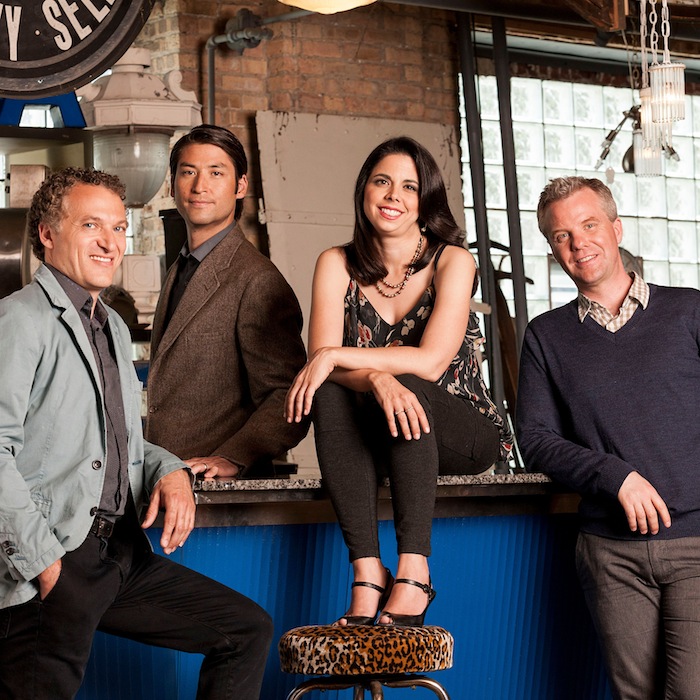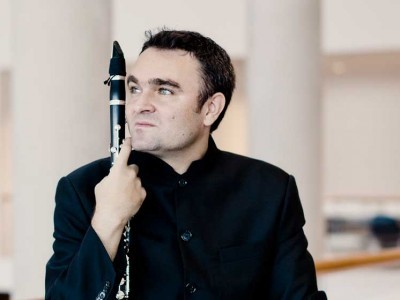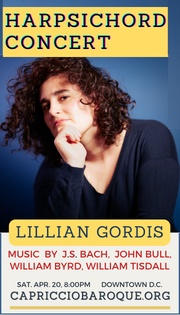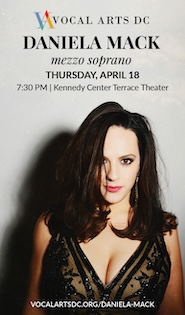Pacifica Quartet and Jörg Widmann on the hunt at Library of Congress

The Pacifica Quartet performed with composer-clarinetist Jörg Widmann Monday night at the Library of Congress.
Along with their recordings of Beethoven and Mendelssohn, the Pacifica Quartet’s live performances and CDs of music by more recent composers, like Elliott Carter and Dmitri Shostakovich, helped put them on the map. For their concert at the Library of Congress Monday night, the group teamed up with German clarinetist and composer Jörg Widmann, with mixed results.
At the program’s center was Widmann’s Third String Quartet, the midpoint of a cycle of five pieces exploring traditional forms. In introductory remarks Widmann described his attempt to dissect the scherzo form in this piece, describing the transformation of the genre in the hands of Beethoven and later composers like Mahler. For all of that range of music, Widmann hewed mostly to the familiar jokey style of the scherzo, with a single movement that was essentially fast and raucous, without a contrasting trio section.

Jörg Widmann
The title of the piece, Jagdquartett, refers to the work’s dramatic program of a hunt, announced at the opening as the musicians holler out, waving their bows. Think the story of the last movement of Vivaldi’s Autumn Concerto, with the cellist as the quarry, but with dissonant squawks and cur-like growling scraped from the strings. As was apparent in his recent piece for glass harmonica and orchestra Widmann has a facile command of sound color, and he was able to weave together snippets borrowed from other composers, Schumann’s Papillons and Beethoven’s Seventh Symphony, for example. It was not clear, however, that he was able to traverse the border from clever pastiche to interesting composition.
For comparison in this regard was the opening work, the Quartet in G Major (Op. 76, no. 1) by the father of the string quartet, Joseph Haydn. The Pacifica Quartet took the first movement at a rollicking tempo, apparently interpreting the tempo marking (Allegro con spirito) to mean hot-blooded. This made the rolling arpeggios in all instruments that lead into the closing theme of the exposition a spirited ride, only to close out the section with a smile. Cellist Brandon Vamos was insistent when given the opportunity to lead the recapitulation, but his tendency to force the sound unbalanced the intonation, as on the final chord of this movement.
The group’s restlessness troubled the inner movements, as the pacing of the slow movement felt much too fast for the marking (Adagio sostenuto). In one minor section toward the middle of the movement the quartet took the sound inside itself, and the resulting sound was perfectly warm and glowing, with shining E string tone from first violinist Simin Ganatra. The musicians rushed through the Menuetto as well, so that the little fast tag in repeated notes was indistinct, but the trio, where they relaxed the tempo slightly, as again an ideal balance, with the three lower instruments on pizzicato accompaniment. Ganatra maintained the sixteenth-note runs in the enigmatic finale, which opens curiously in the parallel minor, but the tempo (Allegro ma non troppo, after all) was again too rapid.
Widmann joined the quartet for the final work, Carl Maria von Weber’s Clarinet Quintet in B-Flat Major. One rarely hears the piece, or much of Weber’s other music, much anymore for reasons that this performance made clear.
Widmann, a fine clarinetist, excelled on the lead part of this work, written for the principal clarinetist of the Munich Court Opera in 1815. There were enough chromatic runs up and down to satisfy the strongest thirst for such virtuosity, but Weber did not do much with the other instruments–first instance, his inability to connect the introduction to the first movement, with sustained chords for the strings that had little to do with the clarinet.
In terms of intonation the strings and the clarinet did not always line up ideally, causing some issues in the slow movement (Fantasia). Here the Menuetto is supposed to be played as fast as possible, and it was, but even at a breakneck tempo the musical jokes grow stale quickly. In the finale, an opera buffa gallop, Widmann’s solo danced on the dotted rhythms played by the strings, but by the end it was clear why this rather tedious showpiece fell into obscurity.
The Library of Congress hosts the next Musicians from Marlboro concert, with violinist Michelle Ross, tenor Nicholas Phan, and friends 8 p.m. January 25. loc.gov/concerts/marlboro2017.html








Posted Jan 24, 2017 at 7:22 pm by Laura Youens
Glad I wasn’t there!